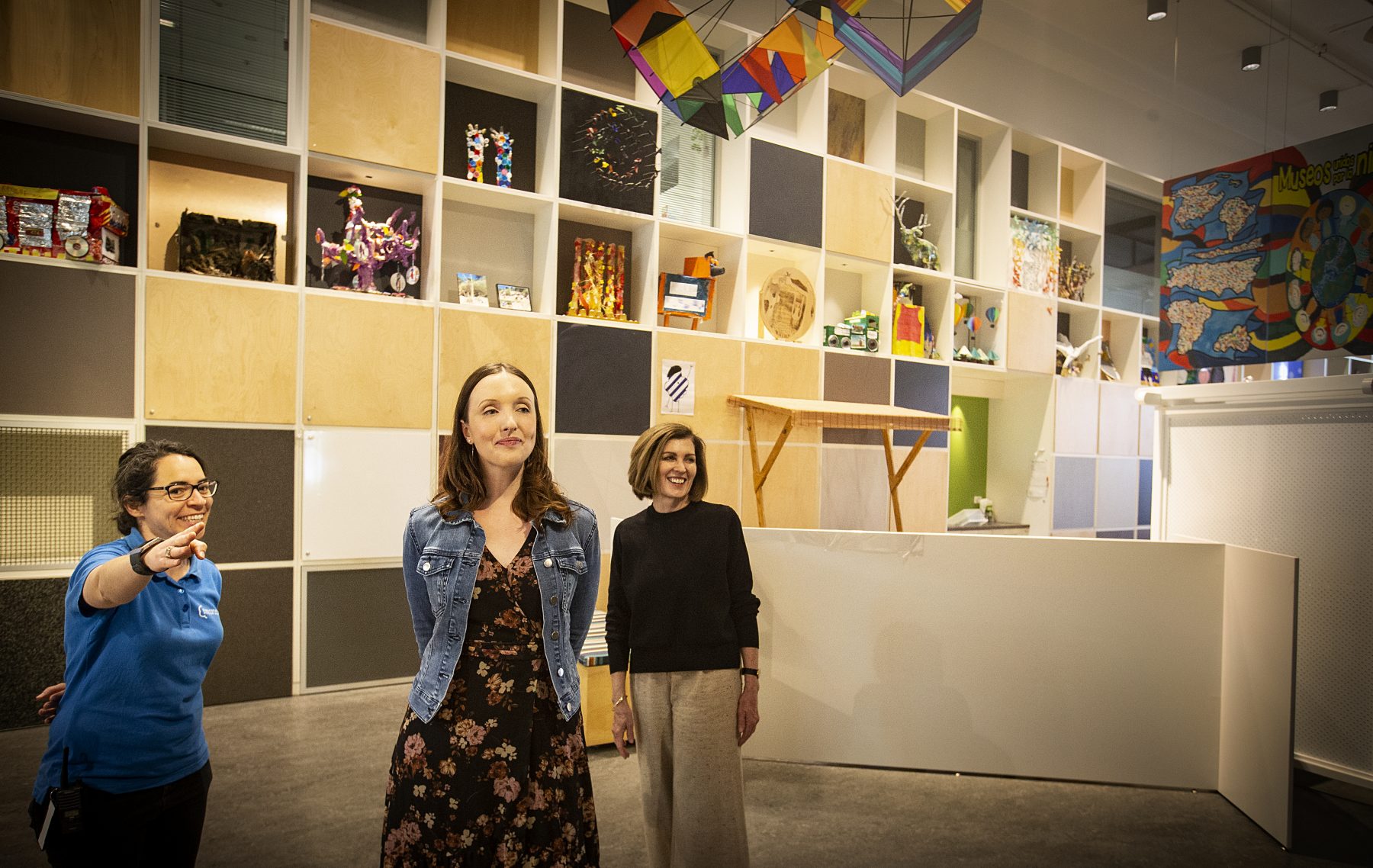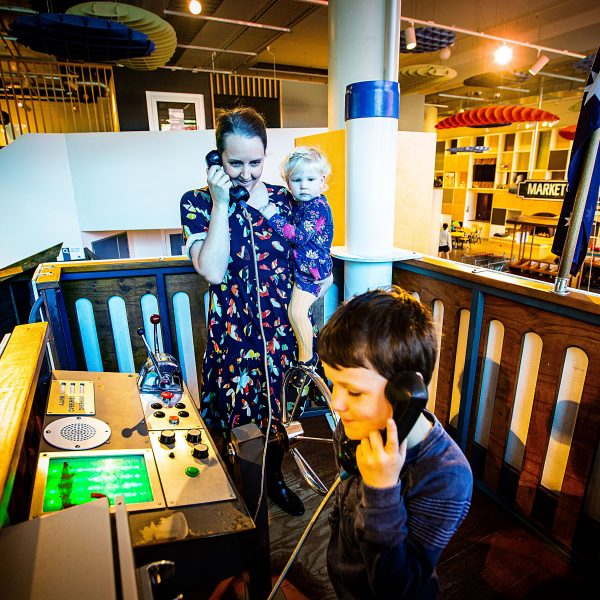New study shows benefits of UOW Early Start Discovery Space in building critical skills

Experiences and educational programs at the University of Wollongong’s (UOW) Early Start Discovery Space help children develop imaginative play, social skills, problem solving, language development and other critical learning skills, a new study has found.
Using a survey of 400 parents, grandparents and other caregivers about their child’s visits to the Discovery Space, researchers gained insights into children’s favourite “experiences” (exhibits), and changes they noticed in their child as a result.
Following the survey, researchers then conducted 18 focus groups (involving 49 caregivers) and 19 one-on-one interviews to explore further how the Discovery Space assisted in the development of early learning skills and the ways in which children used the space.
The results of the research have been published in The International Journal of the Inclusive Museum with lead author Dr Ellie Taylor, saying that the Discovery space, as the world’s first children’s museum on a university campus the Discovery Space “presented a unique opportunity for researchers to evaluate its effectiveness in aiding children’s development”.
“Experiences within the space – including a mock marketplace, construction site, and shipyard – are an opportunity for children and adults to engage in playful learning together,” she added.
“Seeking parent and caregiver input is an integral first step in evaluating the benefits of the Discovery Space and ensuring we can continue to benefit families well into the future,” Dr Taylor said.
Key findings
The survey showed that nearly one-quarter (22 per cent) of caregivers had noticed a change in their child after visiting the Discovery Space, such as greater confidence/independence, higher levels of curiosity, more imaginative play, enjoyment from discovery, and improved social skills.
Other benefits of attending the Discovery Space include an increase in their child’s concentration and focus, concept and knowledge development, imaginative and creative play, language and vocabulary, social skills, problem solving, and physical and sensory development.
The parents and caregivers involved in the research also reported that these developments translated to their everyday life outside of the Discovery Space, with children demonstrating greater confidence and collaboration in the home and other settings, Dr Taylor said.
“Parents recognised their child’s engagement in role play through experiences such as the marketplace, construction site, the cave, and “Lights, Sound Action!” was not only fun, but critical to the development of important life skills.”
Future applications
The Discovery Space has used the study’s findings to improve current experiences and add new role-play experiences such as “Emergency! Emergency!”, which was designed to familiarise children with emergency services and provide an important hands-on learning experience for families.
In terms of future directions, caregivers indicated that they want to see more opportunities for individual expression and discovery, recognising that while structured play is important, they also wanted their child to have the opportunity to be creative and ‘do their own thing.
The inclusion of more diverse cultural perspectives was also a common request from caregivers, which staff have taken into consideration as they develop new experiences and programs that include a multicultural element.
“Evaluating the Effectiveness of Existing Experiences and Educational Programs in a Children’s Museum: Learnings from Extensive Stakeholder Feedback” by Lynette Cronin, Michele E. Peden, Ellie Taylor, Anthony D. Okely, and Martha Johnson, is published in The International Journal of the Inclusive Museum, and was funded by the Abbott Foundation.
To access the research, please see here.
Popular

Quality
Practice
Provider
Research
Workforce
Honouring the quiet magic of early childhood
2025-07-11 09:15:00
by Fiona Alston

Policy
Practice
Provider
Quality
Workforce
Minister Jess Walsh signals urgent action on safety and oversight in early learning
2025-07-11 08:45:01
by Fiona Alston

Workforce
Policy
Quality
Practice
Provider
Research
The silent oath: Why child protection is personal for every educator
2025-07-17 09:00:31
by Fiona Alston











